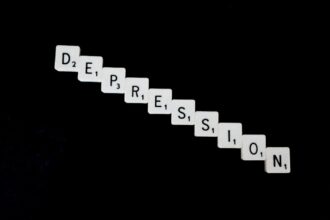Depersonalization Derealization Disorder (DPDR) is a complex psychological condition that can leave you feeling detached from your own thoughts, feelings, and sense of self. Imagine looking at yourself in a mirror and feeling as though the person staring back at you is a stranger. This sensation of disconnection can be unsettling and disorienting, often leading to a profound sense of confusion about your identity and reality.
DPDR is classified as a dissociative disorder, which means it involves a disconnection from your thoughts, memory, or sense of identity. It can occur as a standalone condition or as part of other mental health issues, such as anxiety or depression. The experience of depersonalization can manifest in various ways.
You might feel as if you are observing yourself from outside your body or that your thoughts are not your own. On the other hand, derealization involves a sense of detachment from your surroundings, making the world seem unreal or dreamlike. These experiences can be fleeting or persistent, and they can significantly impact your quality of life.
Understanding DPDR is crucial for recognizing its symptoms and seeking appropriate help, as many people may not even realize they are experiencing this disorder.
Key Takeaways
- Depersonalization Derealization Disorder is a mental health condition characterized by feeling detached from oneself and the surrounding environment.
- Causes of Depersonalization Derealization Disorder can include trauma, stress, anxiety, and substance abuse.
- Symptoms of Depersonalization Derealization Disorder may include feeling like an outside observer of one’s thoughts and actions, emotional numbness, and distorted perception of time and space.
- Depersonalization Derealization Disorder is closely linked to anxiety, with many individuals experiencing both conditions simultaneously.
- Living with Depersonalization Derealization Disorder can impact daily life, including relationships, work, and overall well-being.
Causes of Depersonalization Derealization Disorder
The causes of Depersonalization Derealization Disorder are multifaceted and can vary from person to person. One common trigger is exposure to traumatic events, such as accidents, abuse, or the sudden loss of a loved one. When faced with overwhelming stress or trauma, your mind may resort to dissociation as a coping mechanism, allowing you to distance yourself from the emotional pain.
This protective response can sometimes lead to the development of DPDR, especially if the dissociative episodes become frequent or prolonged. In addition to trauma, other factors may contribute to the onset of DPDR. Chronic stress, anxiety disorders, and depression can all play a role in triggering dissociative symptoms.
If you have a history of mental health issues, you may be more susceptible to experiencing depersonalization or derealization. Furthermore, substance use—particularly hallucinogens or high doses of marijuana—can induce feelings of detachment and may exacerbate existing symptoms. Understanding these potential causes can help you identify patterns in your own experiences and seek appropriate support.
Symptoms of Depersonalization Derealization Disorder

The symptoms of Depersonalization Derealization Disorder can be both distressing and confusing. You may find yourself feeling disconnected from your body or thoughts, leading to a sense of unreality that can be difficult to articulate. Common symptoms include feeling as though you are observing yourself from outside your body, experiencing a distorted sense of time, or having difficulty recalling personal information.
These sensations can create an overwhelming sense of anxiety and fear, as you grapple with the uncertainty of your own identity. Derealization symptoms often involve a distorted perception of your environment. You might notice that familiar places seem strange or dreamlike, as if you are viewing them through a foggy lens.
Colors may appear muted, sounds may seem distant, and everyday objects may take on an unfamiliar quality. This altered perception can make it challenging to engage with the world around you, leading to feelings of isolation and frustration. Recognizing these symptoms is essential for understanding your experiences and seeking help when needed.
The Relationship between Depersonalization Derealization Disorder and Anxiety
| Study | Findings |
|---|---|
| Research Study 1 | High comorbidity between Depersonalization Derealization Disorder and Anxiety disorders |
| Research Study 2 | Depersonalization Derealization Disorder often co-occurs with Panic Disorder and Generalized Anxiety Disorder |
| Research Study 3 | Anxiety symptoms can exacerbate Depersonalization Derealization symptoms |
There is a significant relationship between Depersonalization Derealization Disorder and anxiety disorders. Many individuals who experience DPDR also struggle with anxiety, which can exacerbate feelings of detachment and disconnection. When you are anxious, your body goes into a heightened state of alertness, which can trigger dissociative symptoms as a way to cope with overwhelming emotions.
This cycle can create a feedback loop where anxiety leads to depersonalization, which in turn increases anxiety levels. Understanding this relationship is crucial for managing both conditions effectively. If you find that your anxiety often triggers episodes of depersonalization or derealization, addressing the underlying anxiety may help alleviate some of the dissociative symptoms.
Techniques such as mindfulness meditation, cognitive-behavioral therapy (CBT), and grounding exercises can be beneficial in breaking this cycle. By learning to manage your anxiety more effectively, you may find that your experiences of DPDR become less frequent and less intense.
How Depersonalization Derealization Disorder Affects Daily Life
Living with Depersonalization Derealization Disorder can significantly impact your daily life and overall well-being. The persistent feelings of detachment can make it challenging to engage fully in relationships, work, or even simple daily activities. You might find it difficult to connect with friends and family, as the sensation of being an observer in your own life can create barriers to emotional intimacy.
This disconnection can lead to feelings of loneliness and isolation, further exacerbating any underlying mental health issues. In addition to social challenges, DPDR can affect your ability to concentrate and perform tasks effectively. You may struggle with memory recall or find it hard to focus on conversations or work assignments.
This cognitive impairment can lead to frustration and decreased productivity, impacting your self-esteem and motivation. Recognizing how DPDR affects various aspects of your life is essential for developing strategies to cope with these challenges and seek appropriate support.
Diagnosing Depersonalization Derealization Disorder

Diagnosing Depersonalization Derealization Disorder typically involves a comprehensive evaluation by a mental health professional. If you suspect that you may be experiencing DPDR, it’s important to seek help from a qualified therapist or psychiatrist who specializes in dissociative disorders. During the assessment process, the clinician will likely ask about your symptoms, medical history, and any traumatic experiences you may have encountered.
To receive a diagnosis of DPDR, your symptoms must persist for an extended period—usually at least six months—and cause significant distress or impairment in functioning. The clinician will also rule out other potential causes for your symptoms, such as substance use or other mental health conditions. A thorough evaluation is crucial for ensuring that you receive an accurate diagnosis and appropriate treatment tailored to your specific needs.
Treatment Options for Depersonalization Derealization Disorder
Treatment options for Depersonalization Derealization Disorder vary depending on individual needs and circumstances.
Through therapy, you can learn coping strategies to manage symptoms and address any underlying issues related to trauma or anxiety.
In some cases, medication may also be prescribed to help alleviate symptoms associated with DPDR. Antidepressants or anti-anxiety medications may be used to address co-occurring conditions that contribute to dissociative experiences.
Coping Strategies for Living with Depersonalization Derealization Disorder
Living with Depersonalization Derealization Disorder requires developing effective coping strategies to manage symptoms and improve overall well-being. One helpful approach is grounding techniques, which involve focusing on the present moment through sensory experiences. Engaging in activities that stimulate your senses—such as listening to music, feeling different textures, or practicing deep breathing—can help anchor you in reality when feelings of detachment arise.
Additionally, maintaining a strong support network is vital for coping with DPDR. Sharing your experiences with trusted friends or family members can provide emotional validation and reduce feelings of isolation. Joining support groups—either in-person or online—can also connect you with others who understand what you’re going through.
Remember that you are not alone in this journey; seeking support from others who share similar experiences can be incredibly empowering. In conclusion, understanding Depersonalization Derealization Disorder is essential for recognizing its impact on your life and seeking appropriate help. By exploring its causes, symptoms, and treatment options, you can take proactive steps toward managing this complex condition effectively.
With the right support and coping strategies in place, it is possible to navigate the challenges of DPDR and work toward a more fulfilling life.
Depersonalization-derealization disorder (DDD) is a complex mental health condition characterized by persistent feelings of detachment from one’s body or surroundings. Understanding the causes and triggers of DDD is crucial for effective management and treatment. According to an article on Unplugged Psych, various factors such as severe stress, trauma, or substance abuse can contribute to the onset of this disorder. The article delves into the psychological and neurological underpinnings of DDD, offering insights into how individuals can develop this condition and the importance of seeking professional help. By exploring these factors, individuals can better understand their experiences and work towards recovery.
LEARN MORE About Depersonalization & Derealization
FAQs
What is depersonalization derealization disorder (DDD)?
Depersonalization derealization disorder (DDD) is a mental health condition characterized by feeling detached from oneself (depersonalization) and/or feeling detached from the world around them (derealization).
What are the symptoms of depersonalization derealization disorder?
Symptoms of DDD may include feeling like an outside observer of one’s thoughts, feelings, and body (depersonalization), feeling like the world is unreal or distorted (derealization), emotional numbness, and a sense of disconnection from one’s surroundings.
What causes depersonalization derealization disorder?
The exact cause of DDD is not fully understood, but it is believed to be related to a combination of biological, psychological, and environmental factors. Trauma, stress, anxiety, and certain personality traits may contribute to the development of DDD.
How is depersonalization derealization disorder diagnosed?
DDD is typically diagnosed by a mental health professional, such as a psychiatrist or psychologist, through a comprehensive evaluation of the individual’s symptoms, medical history, and any potential underlying causes.
What are the treatment options for depersonalization derealization disorder?
Treatment for DDD may include psychotherapy (such as cognitive behavioral therapy), medication (such as antidepressants or anti-anxiety medications), stress management techniques, and lifestyle changes to reduce stress and improve overall well-being.
Can depersonalization derealization disorder be prevented?
There is no known way to prevent DDD, but managing stress, seeking support for traumatic experiences, and maintaining overall mental and emotional well-being may help reduce the risk of developing the disorder.




